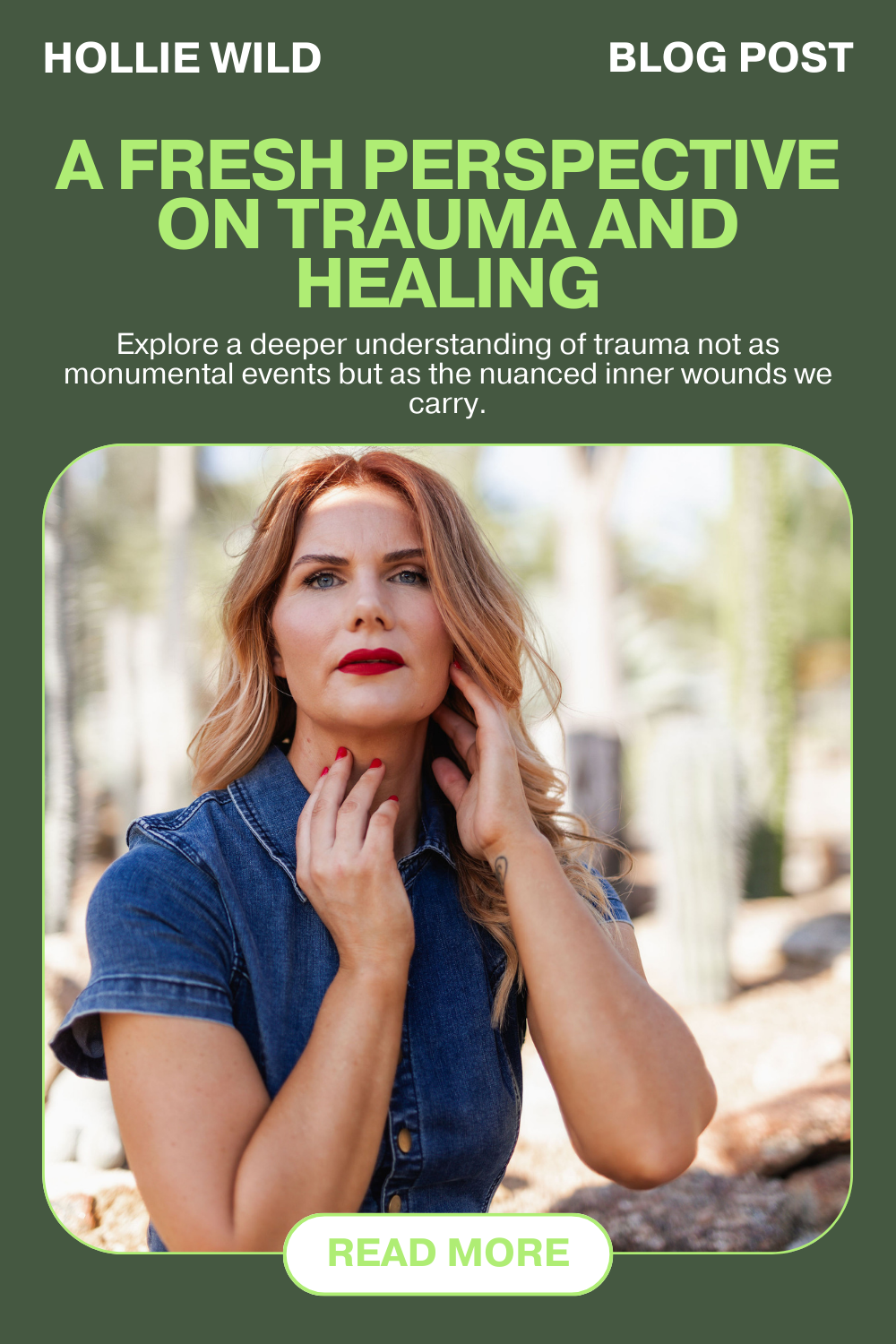Unraveling the Layers: A Fresh Perspective on Trauma and Healing
Beyond Catastrophic Events: Embracing the Complexity of Our Inner Wounds
You might be thinking, "Trauma? That's not me." That was my initial thought too. I've walked down the path, now as a trauma and nervous system healing coach, realising that trauma isn't reserved for the catastrophic. It's about the silent echoes of unprocessed moments that linger in us, shaping our existence in ways we often don't recognise.
Trauma: The Misconception
For a long time, trauma felt like a term that didn't belong to me. It conjured images of devastating events—war, catastrophic accidents, or severe abuse. However, diving deeper into the world of healing revealed a broader, more inclusive understanding. Trauma isn't about the scale of the event but the unprocessed wounds it leaves behind. It's the residue of experiences that our bodies and minds couldn't fully digest, stored away, affecting us silently.
The Revelation: Trauma as Inner Wounds
Discovering that "trauma" in Greek translates to "wound" was a game-changer. Suddenly, the question wasn't about having experienced a life-shattering event but about acknowledging the inner wounds we've all accumulated. These wounds, these pieces of unprocessed trauma, reside within us, influencing our behaviours, our relationships, and our self-perception, often without our conscious awareness.
The Journey of Healing: A Path Less Talked About
My journey to becoming a trauma and nervous system coach has been illuminating, leading me to root cause therapy—a profound method that addresses trauma directly where it lives: in the body. This approach moves beyond the cycle of talking and re-talking through past events, which often leaves the core issue untouched. Instead, it dives into the body's memory, seeking to release and heal the trauma from its roots.
Recognising Trauma in Ourselves
Through my practice, I've encountered countless individuals, each with their unique stories and experiences. Some carry visible scars from their battles, aware of their trauma yet struggling with its shadows—numbness, relational difficulties, and coping mechanisms that no longer serve them.
Others mirror my own initial skepticism. They've led seemingly stable lives but upon closer examination, realise that trauma isn't about dramatic events but the accumulation of unprocessed emotional experiences. This acknowledgment is the first step towards healing, recognising that trauma, in its many forms, is a shared human experience, not a sign of weakness.
Healing Beyond the Conventional
Understanding trauma as an undigested life experience rather than a series of unfortunate events has transformed my approach to healing. It's not about reliving the past over and over, but allowing our bodies to process and release what's been held captive. This journey doesn't promise an easy fix but offers a path towards genuine, lasting healing.
As we navigate our healing journeys, it's essential to remember that trauma doesn't define us. With the right support and methods, we can address these inner wounds, opening ourselves to new levels of growth, understanding, and peace.
Closing Thoughts
For anyone feeling weighed down by unseen scars, know that there's hope. Healing is within reach, and it starts with redefining trauma, not as a label that confines us but as a wound in need of care and healing. The journey might feel raw at times, but it's also filled with potential for transformation and renewal.
Let this be a call to action, not just to those seeking healing but to everyone. By changing our perspective on trauma and embracing the complexity of our inner worlds, we unlock a more compassionate, understanding path forward—for ourselves and for each other.


